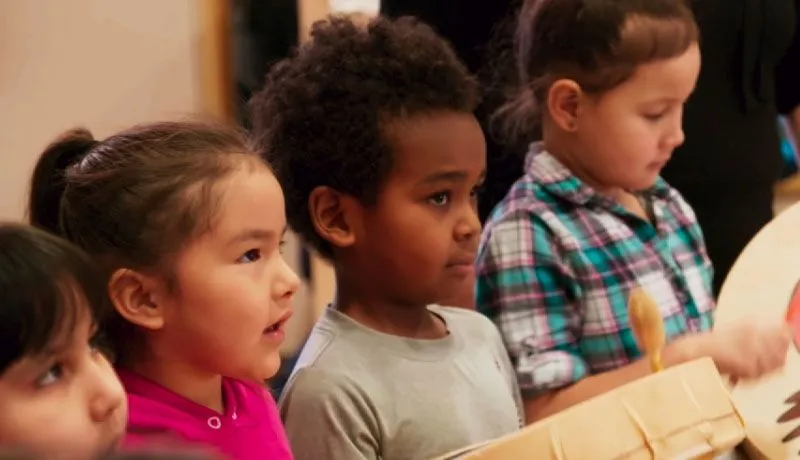5 minutes - Article
Tanya Pace-Crosschild has been helping Blackfoot parents and children for many years.
She says that its never too early to get your child involved in learning about who they are and where they come from. Tanya works at theOpokaa’sin Early Intervention Society in Lethbridge.
“We focus on working with Blackfoot language and culture from 19 months up until six years of age. The first six years of life, we believe, are very sacred. Making sure that they have that real strong beginning in life where children are really, really nurtured and really, really valued and really loved and appreciated.”
Programs for children across the province
There are many culturally based programs for Indigenous children across the province. Blackfoot Elder Francis First Charger spends a lot time with the children at Opokaa’sin. He says the key to success is simple.
“It’s one word. It has four letters in it, it's love. You can feel it when you walk into this place. Being surrounded by our ways. That's how we learn. And you can see the kids, how happy they are.”
Give your child a head start
Parents can feel good about bringing their child to an Aboriginal Headstart or early intervention program.
“A child is a product of its environment,” says Tanya, “The more they know of who they are and what they're about, they're going to find a way to address whatever's in front of them. From there, you'll get a child coming out who will turn around and respect you and care for you as well.”
Tanya says that bringing up a child in their own culture is a way to reclaim some of what was lost over years from residential schools and colonization.
“Well, for years, our Indigenous teachings and our value systems were kind of placed on the back burner, we were told:
‘We're going to teach your children, we're going to take them and we're going to teach them our way.’
So we're really taking back the raising of our children and we're taking back and saying we're going to be the leaders in terms of what works for our families, what works for our children.”
(Image Credit: NCSA Journey Home)
